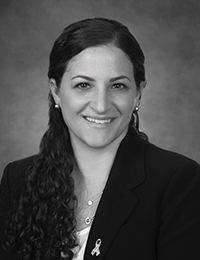
Financial Care for Life > Turning 18
Turning 18
Important Financial Considerations as You or Your Child Becomes of Legal Age
It happens much faster than anyone expects. Whether you’re about to turn 18 or the parent of a soon-to-be teenager, there are a few important key items you need to consider to prepare for financial success and security.
Creating a Living Will
While it’s never an easy item to contemplate, a living will is an essential part of every adult’s estate planning – and that includes young adults turning 18 years old. A living will, often called an advance directive, specifies personal choices about life-extending medical treatment in the event that you cannot communicate your wishes yourself. It’s important to note that a living will is much different from a last will as the latter details how you want your property and assets distributed after you pass away. In contrast, a living will provides instruction of what you want to happen while you are still alive. It specifies your preferred healthcare procedures should you become terminally ill or in a vegetative state and gives authority for a parent to make medical decisions on behalf of their child. Being so, it’s important parents know their child's wishes about life-extending medical treatments or organ donation.
Adding POD/TOD to Accounts
Adding either a POD (“payable on death”) or TOD (“transfer on death”) simply adds a beneficiary to financial accounts. They provide the opportunity to name one or more individuals as primary and contingent beneficiaries, including those who are 18 years and older. POD designations are used at most banks, while investment firms use a TOD designation. POD and TOD are synonymous—different industries simply use different terminology. The biggest advantage to TOD or POD beneficiaries is that accounts with POD or TOD designations pass directly to the beneficiaries without going through probate.
Making Sure You Have an Advanced Healthcare Directive
This directive authorizes someone to make medical decisions on the behalf of another. In the case of a recently turned 18 year old, it empowers a parent or other to access your medical records and communicate with a health care provider. Without this permission, a doctor or medical professional cannot discuss a young adult’s healthcare with their parent.
Assigning a Power of Attorney
Upon reaching 18, financial institutions and universities will no longer share information with parents, despite the fact that they may still be financially dependent. A power of attorney document alleviates this problem by allowing parents the ability to make financial decisions on behalf of their adult teenager. The document also enables parents to open and close bank accounts, negotiate contracts, establish an IRA and, most critically, help with everyday financial needs – including navigating the financial complexities of college.
Establishing a Last Will
Similar to the aforementioned living will, establishing a last will is likely not top of mind. However, it’s an important step that provides both parents and their children peace of mind. The document addresses any wishes in regards to banking, homes, cars and even digital property such as images on social media. Without a will in place, the disposition of assets would be controlled by state law.
Figuring Out New Responsibilities
Becoming a legal adult comes with several new responsibilities. In addition to the civil responsibilities that include the right to vote, jury duty and registering for the Selective Service, 18 year old’s have the ability to sign legally binding contracts and, through a cosigner, obtain a credit card. For many, the looming threat of financial trouble lingers large, especially if there are any withholdings and filings. It’s important that young adults understand the importance of making smart financial decisions and the tax responsibilities.
The KIG team understands that the excitement of turning 18 and becoming a legal adult can overshadow financial preparedness. We’re here to help ensure the transition is seamless for both young adults and parents.
The information presented here is not specific to any individual's personal circumstances.
To the extent that this material concerns tax matters, it is not intended or written to be used, and cannot be used, by a taxpayer for the purpose of avoiding penalties that may be imposed by law. Each taxpayer should seek independent advice from a tax professional based on his or her individual circumstances.
These materials are provided for general information and educational purposes based upon publicly available information from sources believed to be reliable — we cannot assure the accuracy or completeness of these materials. The information in these materials may change at any time and without notice.





 Maggie Slivinski
Maggie Slivinski Steve Corbo
Steve Corbo Alexandra Rao
Alexandra Rao Alexa Comey
Alexa Comey Gene Donato
Gene Donato Jack W. Kennedy III, CFP®, AAMS®
Jack W. Kennedy III, CFP®, AAMS® Henry (Hank) J. Schroeder, CFP®
Henry (Hank) J. Schroeder, CFP® Diane Gallagher
Diane Gallagher Scott Bernstiel
Scott Bernstiel Chrissy Carpenter
Chrissy Carpenter David Strout
David Strout Keith R. Hering AAMS®, CRPS®, CIMA®
Keith R. Hering AAMS®, CRPS®, CIMA®  Marjorie Onuwa
Marjorie Onuwa